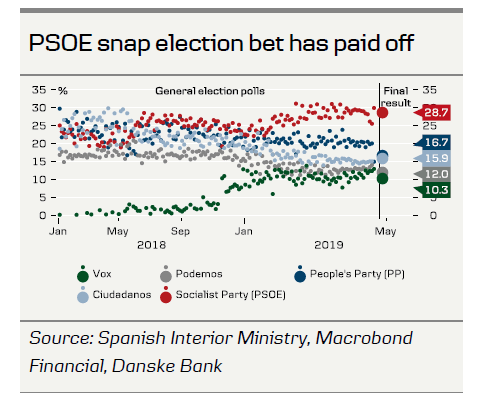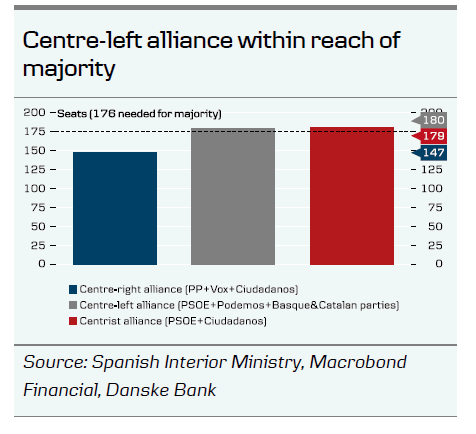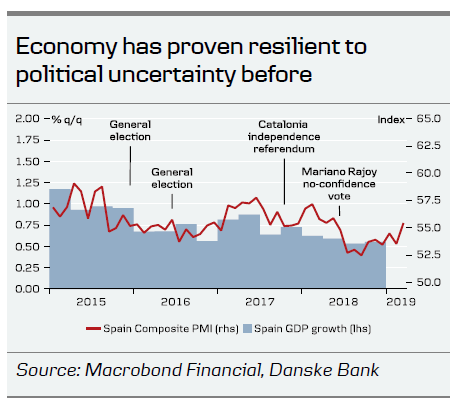The third general election in four years brought another shake-up in Spain’s political landscape, for the first time seeing the far-right Vox party joining the ranks of parliament. That said, it underperformed compared with the polls and its impact on policy-making will likely remain limited, with a centre-left alliance of the Socialist party (PSOE), Podemos and regional Catalan and Basque parties coming within reach of a majority. The snap election bet clearly paid off for the PSOE, which gained some 39 seats compared with its previous 84, making it by far the largest party in the new parliament.
Focus now reverts to coalition-building, but a difficult task still lies ahead. With the Catalan parties as king makers, the independence question could again take centre stage in the forthcoming negotiations. It remains to be seen whether promises on negotiations about more regional autonomy will satisfy the parties or whether demands for another independence vote render any coalition talks futile. This might induce the PSOE to reconsider talks with Cuidadanos instead, which would also yield a majority. Overall, we do not expect the fog on the political front to lift much before the EU Parliament elections at the end of May, with politicians’ appetite for clear commitments likely to be muted before the voting.
Although a period of political uncertainty might lie ahead, we do not expect it to have major negative spill-over to the Spanish economy, which has been fairly resilient to previous such episodes. Should a centre-left coalition eventually emerge, we would expect to see a high degree of policy continuity from the previous PSOE minority government. Both Podemos and the PSOE have previously advocated a scale-back of the 2012 labour market reforms, further increases in the minimum wage, higher social benefits and lower taxes on low income earners, partly financed by raising taxes on companies and high income earners. While such policies are unlikely to inhibit the Spanish growth engine in the short term, it could still have negative repercussions on the business environment and public finances in the medium term, with Spain already having one of the highest structural budget deficits in the euro area.
We think Eurosceptic risks under a centre-left government including Podemos will remain small, as the party has moderated its rhetoric on that front in the past years. However, warnings from Brussels about a large fiscal expansion still have the potential to stoke renewed tensions.
As the election outcome was broadly in line with previous polls and the Vox party did not become a king maker in Spanish politics, we expect the market reaction to be muted. The economy remains on a strong footing, the rating outlook is stable and the risk of a Eurosceptic government is small. Furthermore, the periphery fixed income markets continue to see support from the hunt for carry after the ECB set the scene for a ‘low-forlonger’ interest rate environment and Spain remains our top pick in the periphery



